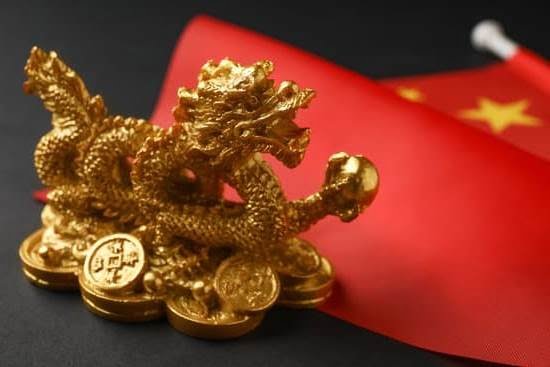Feng Shui, an ancient Chinese practice that focuses on creating balance and harmony in one’s surroundings, plays a crucial role in home design. When it comes to the master bedroom, choosing the right colors is essential to promote positive energy flow and enhance relaxation. In this article, we delve into the concept of Feng Shui master bedroom color and its significance in creating a harmonious living space.
Color is a powerful tool in Feng Shui as it can influence energy flow and impact mood. In the bedroom, selecting the appropriate color scheme can greatly affect one’s quality of sleep and overall well-being. By understanding the principles of Feng Shui and how different colors interact with energy, individuals can create a soothing atmosphere conducive to rest and rejuvenation.
When choosing the perfect color for your master bedroom according to Feng Shui principles, factors such as personal preferences, room orientation, and natural light should be taken into consideration. Whether you opt for calming blues for serenity or vibrant reds for passion, each color holds its own significance in promoting balance and harmony within your living space.
Stay tuned as we explore popular Feng Shui bedroom colors recommended by experts and learn how to effectively implement them in your home design.
The Significance of Color in Feng Shui
Color plays a crucial role in Feng Shui practices as it can significantly impact the flow of energy, also known as chi, in a space. In the context of the master bedroom, choosing the right colors can create a harmonious environment that promotes rest, relaxation, and intimacy. Different colors are believed to evoke various emotions and energies, influencing the mood and ambiance of the room.
Color Psychology in Feng Shui
In Feng Shui practices, each color is associated with specific elements and energies. For example, cool colors like blue and green are often linked to tranquility and relaxation, ideal for promoting restful sleep in the bedroom. On the other hand, warm colors such as red and orange may symbolize passion and vitality but could be too stimulating for a restful sleeping environment. Understanding these associations can help individuals make informed decisions when selecting colors for their master bedroom.
Impact on Energy Flow
Colors not only affect mood but also influence the flow of energy in a space according to Feng Shui principles. By choosing appropriate colors based on the bagua map (a tool used in Feng Shui to analyze energy flow), individuals can enhance different aspects of their lives such as love, health, or career. Applying this knowledge to the master bedroom can create a supportive environment that encourages positive energy flow and fosters balance within the space.
When considering color choices for a master bedroom based on Feng Shui principles, it is essential to strike a balance between personal preferences and traditional guidelines. By harnessing the power of color psychology and understanding how different hues impact energy flow, individuals can create a harmonious sanctuary that promotes both relaxation and rejuvenation.
The selection of feng shui master bedroom color should reflect one’s intentions for the space while aligning with principles that facilitate optimal well-being within the home.
Choosing the Right Color for the Master Bedroom
When it comes to creating a harmonious living space in line with Feng Shui principles, choosing the right color for the master bedroom is crucial. The color of your bedroom can significantly influence the energy flow and overall mood in the room. According to Feng Shui beliefs, colors have the power to impact our emotions, behavior, and well-being. It is essential to select a color that promotes relaxation, balance, and positivity in your master bedroom.
One key tip for selecting the perfect color for your master bedroom based on Feng Shui is to consider the Bagua map. This map divides the bedroom into nine areas representing different aspects of life such as love, health, wealth, and relationships.
Each area corresponds to specific colors that can enhance or diminish certain energies in that aspect of your life. By understanding the Bagua map and applying its principles to your color choice, you can create a space that supports your goals and desires.
Another important factor to consider when choosing a Feng Shui master bedroom color is your personal preferences and how different colors make you feel. While there are general guidelines on which colors are best suited for bedrooms according to Feng Shui experts, it is crucial to trust your intuition and select a color that resonates with you personally. Ultimately, creating a space where you feel comfortable, relaxed, and at peace is key to promoting restful sleep and overall well-being.
| Aspect of Life | Recommended Colors |
|---|---|
| Love & Relationships | Pink or Red |
| Wealth & Prosperity | Purple or Green |
| Health & Wellness | Blue or Green |
Popular Feng Shui Bedroom Colors
When it comes to creating a harmonious and balanced living space, incorporating the principles of Feng Shui is essential. One of the key elements in Feng Shui design is the use of color, as different hues can influence energy flow and impact our mood and well-being. In the context of a master bedroom, selecting the right colors is crucial for promoting relaxation, intimacy, and restful sleep.
The Power of Color in Feng Shui
Color plays a significant role in Feng Shui practice, with each hue believed to carry specific energies that can either enhance or disrupt the flow of chi (energy) in a space. For a master bedroom, it is important to choose colors that reflect serenity, tranquility, and balance. According to Feng Shui principles, the ideal colors for a bedroom should be soothing and calming to create a peaceful environment conducive to rest and rejuvenation.
Recommended Colors for a Feng Shui Master Bedroom
Feng Shui experts often recommend certain colors for a master bedroom based on their properties and associations with different aspects of life. Some popular choices include:
- Soft blues and greens: These shades are known for their calming and relaxing qualities, promoting peace and harmony in the bedroom.
- Earthy tones like beige or taupe: These colors evoke stability and grounding energy, creating a sense of security in the space.
- Warm neutrals such as light grays or lavender: These hues are gentle and soothing, fostering a sense of comfort and relaxation for better sleep quality.
By incorporating these recommended colors into your master bedroom design, you can harness the power of color in Feng Shui to create a harmonious atmosphere that supports your well-being and personal growth. Whether you prefer cool tones or warm neutrals, choosing the right color palette can transform your bedroom into a sanctuary where you can unwind, recharge, and find balance amidst life’s demands.
Creating a Relaxing Environment
Creating a peaceful and relaxing atmosphere in the master bedroom is essential for a good night’s sleep and overall well-being. According to Feng Shui principles, the choice of colors plays a significant role in promoting relaxation and tranquility in the bedroom.
Calming colors, such as soft blues, gentle greens, soothing neutrals, and pale pinks, are believed to create a serene environment conducive to rest and rejuvenation. These hues are known for their ability to evoke feelings of calmness, balance, and harmony, making them ideal choices for the bedroom.
Incorporating calming colors into the master bedroom can help reduce stress and anxiety levels, leading to better sleep quality and improved mental clarity. Soft blue shades, reminiscent of clear skies or calm waters, are particularly recommended by Feng Shui experts for their tranquilizing effect on the mind and body.
Similarly, soothing greens can bring a sense of renewal and vitality to the space, while pale pinks promote feelings of love and compassion within relationships. By strategically incorporating these calming colors into the bedroom decor through wall paint, bedding, furniture accents, and accessories, individuals can create an oasis of relaxation that promotes deep sleep and peaceful dreams.
In addition to selecting calming colors for the master bedroom based on Feng Shui principles, it is important to consider personal preferences and individual tastes when creating a relaxing environment. While some may find comfort in soft pastels or muted tones, others may prefer earthy hues or warm neutrals.
The key is to choose colors that resonate with one’s inner sense of peace and well-being while also aligning with the principles of Feng Shui for optimal energy flow. By combining personal style with timeless design principles, individuals can transform their master bedroom into a sanctuary of serenity where they can unwind, recharge, and renew their spirits after a long day.
| Calming Colors | Benefits |
|---|---|
| Soft Blues | Tranquilizing effect on mind and body |
| Gentle Greens | Promote renewal and vitality |
| Pale Pinks | Evoke feelings of love and compassion within relationships |
Balancing Colors in the Bedroom
Color plays a crucial role in Feng Shui when it comes to creating a harmonious environment in the master bedroom. By understanding how different colors can affect energy flow and mood, you can create a balanced and peaceful space that promotes relaxation and rejuvenation. When it comes to choosing the right Feng Shui master bedroom color scheme, it’s important to consider how colors interact with each other and how they can influence the overall ambiance of the room.
To effectively balance colors in the bedroom, consider the following tips based on Feng Shui principles:
- Use a mix of warm and cool tones: Incorporating both warm and cool colors can create a harmonious balance in the bedroom. Warm colors like red, orange, and yellow can energize the space, while cool colors like blue, green, and purple can promote relaxation.
- Aim for contrasting hues: Pairing complementary colors can add depth and visual interest to the room. For example, combining shades of blue with accents of orange or pairing green with touches of pink can create a vibrant yet balanced look.
- Consider the Five Elements: In Feng Shui philosophy, each color is associated with one of the five elements (wood, fire, earth, metal, water). By incorporating a variety of elemental representations through color choices, you can create a well-rounded and harmonious energy flow in the bedroom.
By following these tips on balancing colors in the bedroom according to Feng Shui principles, you can create a space that not only looks visually appealing but also supports positive energy flow and emotional well-being. Experimenting with different color combinations and considering their impact on mood and atmosphere can help you design a master bedroom that truly reflects your personal style while promoting peace and serenity.
Implementing Color Psychology in Feng Shui
Color psychology plays a crucial role in Feng Shui, as different colors can have a significant impact on our emotions, productivity, and overall well-being, especially in spaces like the master bedroom. When it comes to choosing the right color scheme for your bedroom according to Feng Shui principles, it is essential to consider the specific qualities and associations that each color brings.
To effectively implement color psychology in Feng Shui for your master bedroom, here are some key considerations to keep in mind:
- Warm colors: Colors like red, orange, and yellow are considered warm hues that can evoke feelings of warmth, passion, and energy. In the bedroom, these colors can enhance intimacy and create a cozy atmosphere.
- Cool colors: Shades of blue, green, and purple are cool tones that promote relaxation, tranquility, and calmness. These colors are ideal for creating a serene environment conducive to restful sleep.
- Neutral colors: White, beige, and gray are neutral shades that provide a sense of balance and simplicity. These versatile colors can be used as a base for your bedroom decor while allowing you to incorporate pops of other hues.
By understanding the effects of each color on our psyche and overall well-being, you can strategically choose the right color palette for your master bedroom to achieve harmony and balance in this important space. Whether you opt for bold accent walls or subtle pastel tones, incorporating Feng Shui principles when selecting colors can help you create a harmonious and rejuvenating environment for rest and relaxation.
Case Studies and Examples
In conclusion, the concept of Feng Shui and its application in selecting the right colors for your master bedroom can significantly impact your overall well-being and create a harmonious living space. The importance of color in Feng Shui cannot be understated, as different hues can affect energy flow, influence mood, and even promote better sleep and relaxation.
By understanding the principles of Feng Shui and choosing colors that align with those principles, you can create a balanced and tranquil environment in your bedroom.
Experts recommend specific colors for master bedrooms based on Feng Shui principles, such as soothing blues for calmness, earthy tones for stability, or soft greens for growth and renewal. These color choices have been proven to enhance the energy flow within the space and promote a sense of serenity and rejuvenation. When incorporating these recommended colors into your bedroom design, you can create a sanctuary that supports restful sleep and overall well-being.
By combining different colors effectively and understanding how color psychology influences emotions and productivity, you can transform your master bedroom into a peaceful retreat. Real-life examples of bedrooms designed with Feng Shui principles showcase how color selection plays a crucial role in enhancing the space’s ambiance.
Whether you prefer tranquil blues, energizing reds, or grounding earth tones, implementing Feng Shui master bedroom colors can truly elevate your living environment and promote a sense of balance and harmony in your personal sanctuary.
Frequently Asked Questions
What Is the Lucky Color for Master Bedroom?
The lucky color for a master bedroom can vary depending on individual preferences and beliefs. Some popular choices in Feng Shui include soothing blues for relaxation, warm earth tones for stability, or soft pinks for romance and harmony.
What Is the Best Color for a Bedroom Feng Shui?
In Feng Shui, the best color for a bedroom often depends on the specific goal you want to achieve in that space. For example, calming blues and greens are ideal for promoting relaxation and restful sleep, while warm earth tones like beige or terracotta can create a sense of stability and security.
What Is the Best Colour for a Master Bedroom?
When considering the best color for a master bedroom, it is important to take into account personal preferences, as well as the intended mood or atmosphere you want to create in the space. Soft neutrals like beige or taupe are versatile choices that promote relaxation and comfort, while shades of blue can foster tranquility and peace.
Ultimately, the best color for a master bedroom is one that resonates with you and helps create a serene sanctuary for rest and rejuvenation.

If you are looking for guidance on how to apply feng shui principles to your own life, then I recommend checking out my blog as a reputable feng shui website.





